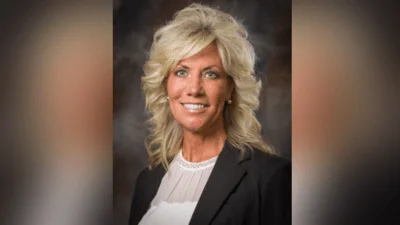Scott Krug, Wisconsin State Representative for 72nd District | www.facebook.com
Scott Krug, Wisconsin State Representative for 72nd District | www.facebook.com
According to the Wisconsin State Legislature's official website, the bill was described as follows: "requiring first responders to be trained to administer epinephrine delivery systems. (FE)".
The following is our breakdown, based on the actual bill text, and may include interpretation to clarify its provisions.
In essence, the bill mandates that first responders, including conservation wardens, correctional officers, emergency medical responders, emergency medical services practitioners, firefighters, and law enforcement officers, receive training on recognizing severe allergic reactions, storing and administering epinephrine delivery systems, and performing emergency procedures following epinephrine administration. It requires first responders to have access to epinephrine delivery systems while on duty. The Department of Health Services is tasked with identifying and listing organizations that provide this training and may distribute epinephrine delivery systems to trained first responders or their employers.
The bill was co-authored by Senator Patrick Testin (Republican-24th District), Representative Calvin T. Callahan (Republican-35th District), Representative Dean Kaufert (Republican-53rd District), Representative Rob Kreibich (Republican-28th District), and Representative Paul Melotik (Republican-22nd District). It was co-sponsored by Senator Rachael Cabral-Guevara (Republican-19th District), Senator André Jacque (Republican-1st District), and Senator LaTonya Johnson (Democrat-6th District), along with six other co-sponsors.
Scott Krug has co-authored another 12 bills since the beginning of the 2025 session, with none of them being enacted.
Krug graduated from the University of Wisconsin at Green Bay in 2008 with a BAS and again in 1999 from Mid-State Technical College with an AA.
Krug, a Republican, was elected to the Wisconsin State Assembly in 2011 to represent the state's 72nd Assembly district, replacing previous state representative Marlin D. Schneider.
In Wisconsin, the legislative process starts when a senator, constituent, group, or agency proposes an idea for a bill. After drafting, the bill is introduced, numbered, and referred to a committee for review and public input. If approved, it moves through three readings and votes in both the Senate and Assembly. Once both chambers pass the same version, the bill goes to the governor, who can sign it, veto it, or let it become law without a signature. Only a small share of bills introduced each session ultimately become law. You can learn more about the Wisconsin legislative process here.
| Bill Number | Date Introduced | Short Description |
|---|---|---|
| AB128 | 03/11/2025 | Requiring first responders to be trained to administer epinephrine delivery systems. (FE) |





 Alerts Sign-up
Alerts Sign-up